The Human Rights Watch Film Festival, now in its 28th year in London, presents a line-up of 10 award-winning, international feature-length films. These will be screened from 14-24 March in London.
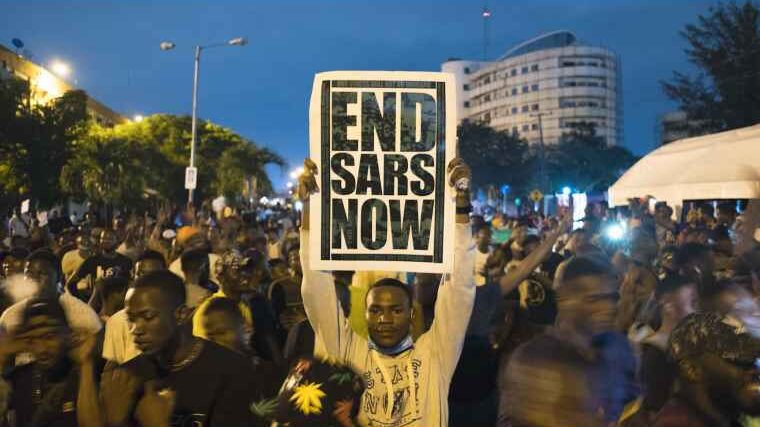
Information: Sarah Harvey
The festival programme, presented at the Barbican and Rich Mix, includes in-depth Q&As and panel discussions with filmmakers, film participants, activists and Human Rights Watch researchers following all screenings. The majority of the programme will also stream across the UK and Ireland on the festival website from 18-24 March.
This year’s edition celebrates the convergence of art and human rights and highlights the role of youth in rising up to confront systems of power.
John Biaggi, director of the Human Rights Watch Film Festival, said: “This year our programme of seven documentaries and three dramas spotlights the energy and determination of young people, art and human rights and opposing systems of power – told through the lens of women and girls, queer and trans youth, Indigenous environmental activists and exiled artists.”
Opening and closing night events take place at the Barbican, both attended in person by the filmmakers and expert speakers.
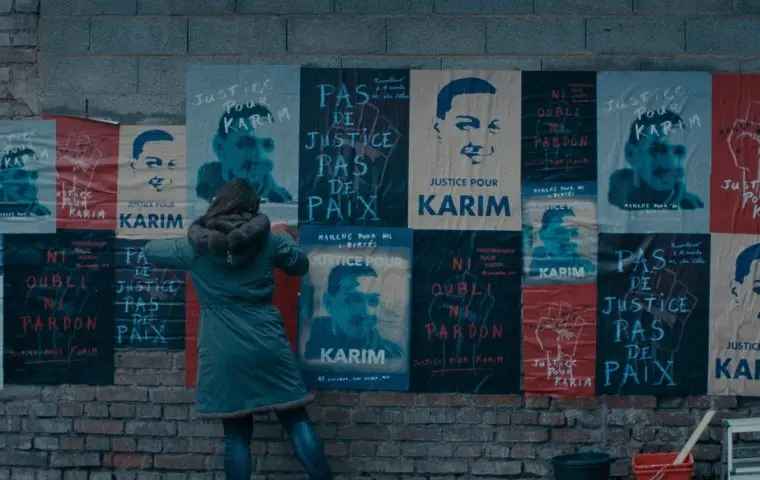
The opening night film, “Mediha”, made by a documentary filmmaker, Hasan Oswald, is a heartfelt and intimate account of Mediha Alhamad, a teenage Yazidi girl, recently returned from Islamic State (ISIS) captivity, who turns the camera on herself as she initiates investigations into the crimes committed against her, and in the process stands up for her family and the Yazidi people.
In the closing night film, “Summer Qamp”, non-binary filmmaker Jen Markovitz brings an uplifting, funny and moving look at Camp fYrefly in the forests of Alberta, Canada, where LGBTQ+ teens explore their authentic selves, make friends, and build community—far away from the fierce political battle being waged against them.
The energy and power of young people continues in two more festival titles: “Coconut head generation”, directed by Alain Kassanda, provides front-row seats for lively, political, and impassioned debates in a student film club in Nigeria as they unpack critical issues facing young people today – from colonialism to government corruptio n, gender, and equality.
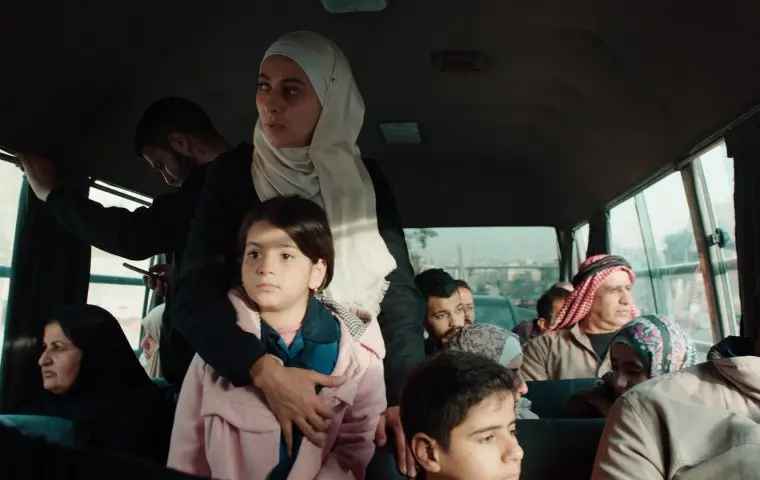
In one of three festival dramas this year, “Power Alley” directed by Lillah Halla, depicts a young and vibrant LGBTQ+-inclusive volleyball team in Brazil who support and fight for each other’s dignity and rights, especially when one of their team members must seek an abortion in a country where it is criminalised in most circumstances.
Speaking truth to power is at the heart of four films in the festival including two stand-out dramas. Former news journalist turned feature filmmaker Mehdi Fikri’s debut film “After the fire”, is a devastating look at a family’s fight for truth and justice after their son is killed at the hands of the police, which pulls back the curtain on France’s history of racial profiling and police violence. The sharp-witted and beautifully acted Inshallah a boy, directed by Amjad Al Rasheed, features Nawal, a quietly powerful Jordanian mother whose husband unexpectedly passes away, leaving her to battle against a patriarchal legal system and attempts by her brother-in-law to claim all of her assets and guardianship of her daughter.
In the documentary “Land of my dreams”, the filmmaker, Nausheen Khan, draws on her identity as an Indian Muslim woman. She intimately captures intergenerational, multi-faith women at the forefront of a nationwide non-violent resistance movement, which began at Shaheen Bagh, a Muslim neighbourhood in Delhi, to protest the Indian government’s Citizenship Amendment Act, which overtly discriminates against Muslims.
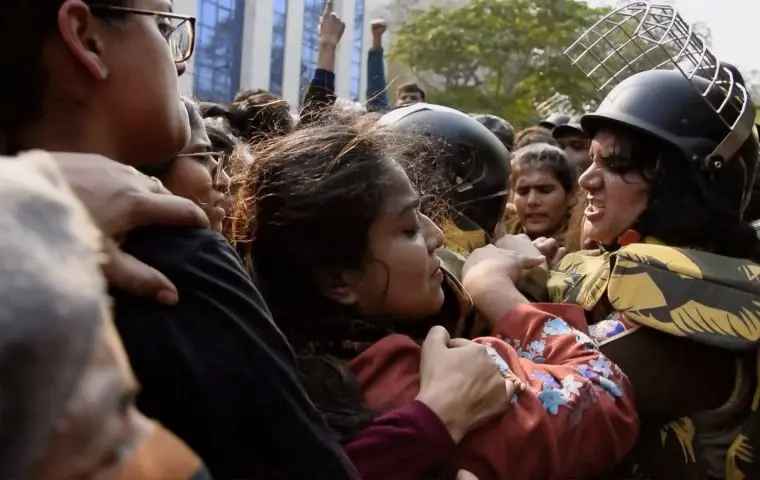
“We are guardians”, co-directed by Edivan Guajajara, Chelsea Greene, and Rob Grobman centres the essential and dangerous work of Indigenous forest guardians battling governmental indifference, politically connected agribusinesses, cattle ranchers, and illegal loggers as they fight to protect their traditional land in the increasingly vulnerable Amazon rainforest.
The intersection between art and human rights is strikingly demonstrated in two films in the festival. “A revolution on canvas” is a profile of one of Iran’s most revolutionary artists, Nickzad (Nicky) Nodjoumi. Filmmakers Sara Nodjoumi, his daughter, and Till Schauder create a rich tapestry of family history, artistic freedom, politics, and persecution that boldly reveals the power of art in the fight for human rights. “Tree of violence” directed by Anna Moiseenko, brings to life the work of the Russian graphic artist and activist Victoria (Vika) Lomasko through a striking mix of fly-on-the-wall and animation.
The film follows Vika as she investigates the connection between domestic and state-sponsored violence and patriarchy through her art, while the invasion of Ukraine unfolds and her personal safety in her homeland becomes less assured.
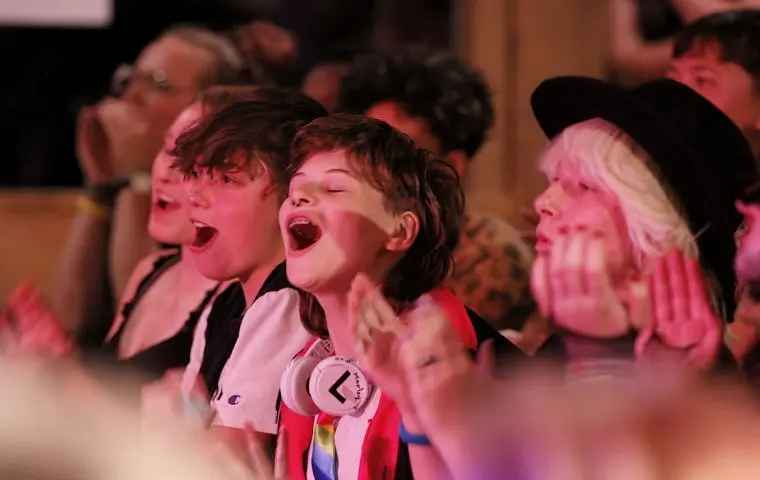
It is also known that five of the festival films this year will be audio described and play with captions, with live-transcription for the conversations to follow. See the website for accessibility specifications for each film in the line-up.
More information about the screenings and discussions: The Human Rights Watch Film Festival, #HRWFFLDN @hrwfilmfestival
(Photos: Festival press office)












.jpg)












